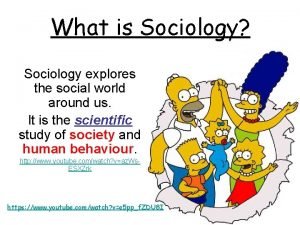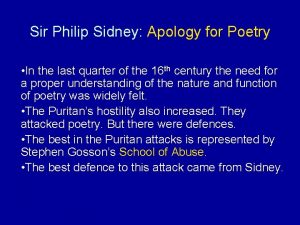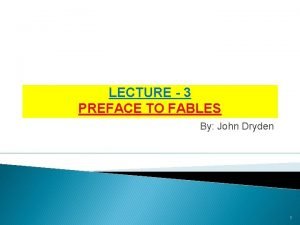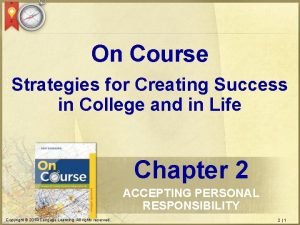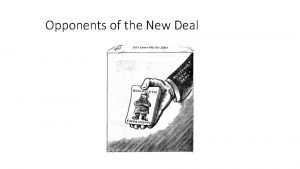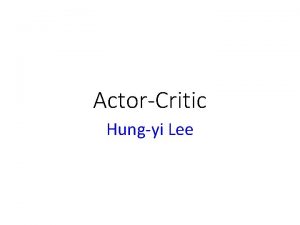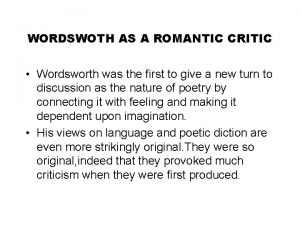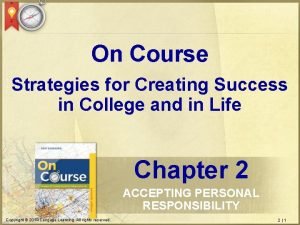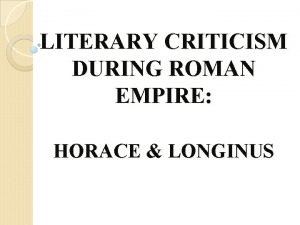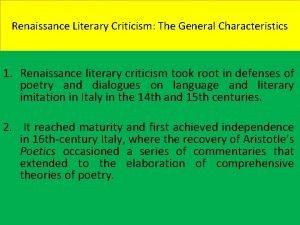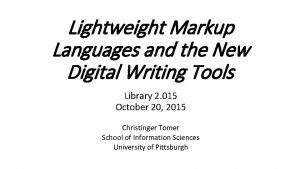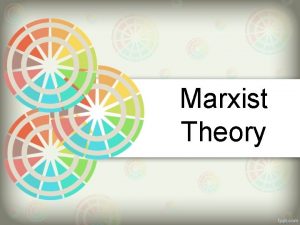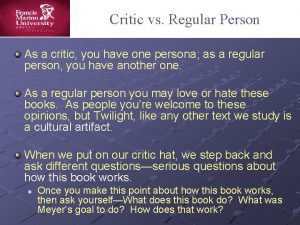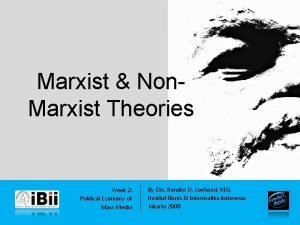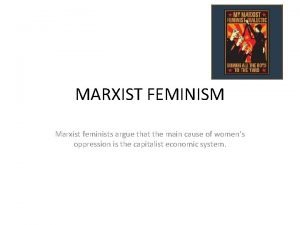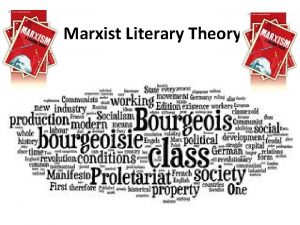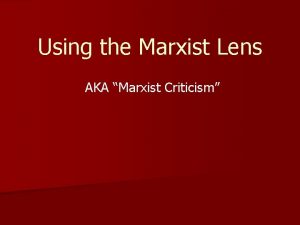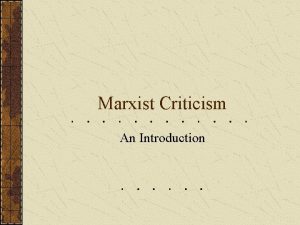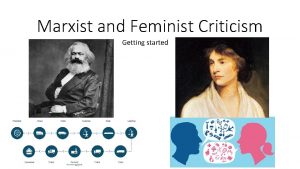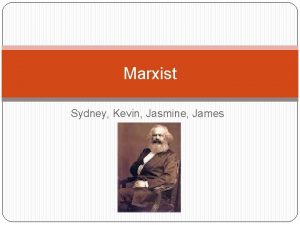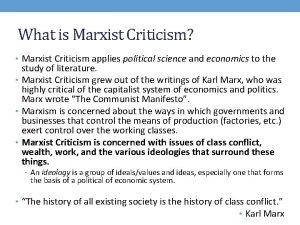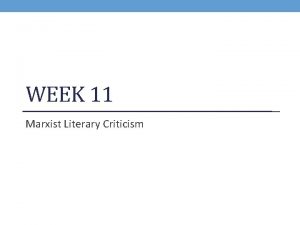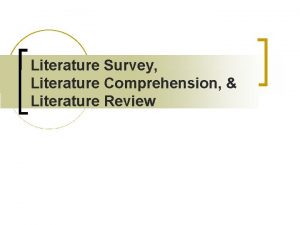THE MARXIST CRITIC Considers literature as a Explores














- Slides: 14

THE MARXIST CRITIC � Considers literature as a _______________________________ ______. � Explores the way ____________________ are intentionally or unintentionally hallenged in a literary workreflected

� Examines _________________________________ ___. � Sees the class status and ideologies of the author as impinging on the work (the work is very much a product of its context) � Examines the social and economic

� According to Marxist scholars, literature reflects the social institutions out of which it emerges and is itself a social institution with a particular ideological function. �__________________ ____ �in turn, the text itself helps to continue

� In a Capitalist society, Marxist critics argue, texts reflect class struggle and materialism. � The Marxist critic, then, carefully reads a text and examines issues of power and money.

� Marxist literary theories tend to focus on the representation of class conflict as well as the reinforcement of class distinctions through the medium of literature. � Marxist theorist often champion authors sympathetic to the working classes and authors whose work challenges economic equalities found in capitalist societies

QUESTIONS A MARXIST WOULD EXPLORE � What class structures or ideologies are reflected in the work? Does it seem intentional or unintentional? � __________________________________ ______? � Is the story of the socially or economically disenfranchised told? Or is the story of the socially or economically told?

� Are the disenfranchised diminished? Are the elite valued more than the disenfranchised? � __________________________________? � Is the author a member of the social and economic privileged? Is the author a member of the socially or economically underprivileged?

� What kinds of power (social, economic, sexual, physical, etc. ) are evident in the text? What is the social order? � Who has power in the text? How do they maintain and/or gain power? � How do power relationships operate in the text? Who gains and loses in the relationships?

� What, if anything, causes power to change hands? � What ideologies (values, beliefs, social roles) are evident in the text? � Do characters recognize the oppressive social order/ideologies? � _________________ ___?

� In what ways does the work serve as propaganda for the status quo (keep society the same); or does it try to undermine it? � What does the work say about oppression; or are social conflicts ignored or blamed on others? � What social/economic forces affect the author's writing?

STRENGTHS � Marxist criticism is ______________________________ _______. � Also, this approach appeals too a broad spectrum of people and is very good at exploring political and personal relationships.

DRAWBACKS � Marxist criticism's ____________________________ ___.

TERMS � ________ – the working class (average Joe/Josephine � _________– wealthy (the 1%) the upper class,

� Itsy bitsy spider… � Alienation…
 Marxist approach in literature
Marxist approach in literature Explores
Explores Learning explores
Learning explores Who considers poetry a mother of lies
Who considers poetry a mother of lies John dryden preface to the fables
John dryden preface to the fables Inner critic and inner defender
Inner critic and inner defender New deal critic dr francis townsend
New deal critic dr francis townsend Actor critic network
Actor critic network Romantic criticism wordsworth
Romantic criticism wordsworth Inner defender and inner guide examples
Inner defender and inner guide examples Horace as a critic
Horace as a critic Ron weasley outline
Ron weasley outline Characteristics of literary criticism
Characteristics of literary criticism Lightweight markup
Lightweight markup Formalist structuralist critic
Formalist structuralist critic

